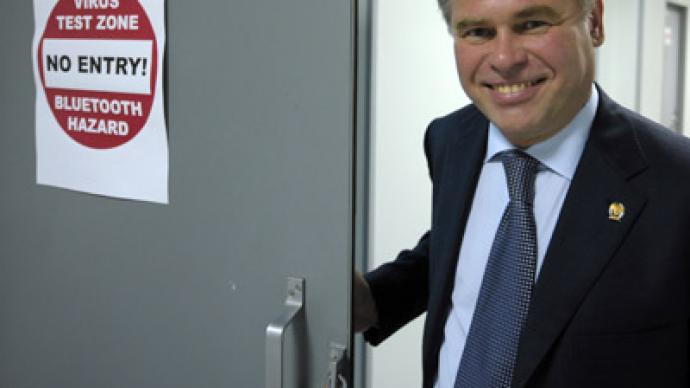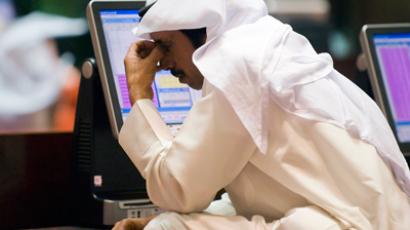Wired’s Most Dangerous: Russia’s cyber-security mogul behind Flame virus downfall hits top 15

Two US whistleblowers, Syria’s president, a Mexican drug lord – and Evgeny Kaspersky, the founder of Kaspersky Lab., one of the biggest international malware-fighting companies – make it into the list of Wired magazine’s Most Dangerous People.
Why dangerous though? What brings together Paula Broadwell whose book cost the CIA’s director David Petraeus his post in the government and Iran’s mysterious general Qassem Suleimani thought to be behind Tehran’s alleged nuclear weapons aspirations? “There used to be an established order to the world. A structure to things. You couldn't print a gun like a term paper,” writes the Wired’s Danger Room blog. “It was impossible to wreck a nuclear production plant with a few lines of code.” This is where Evgeny Kaspersky comes in for the first time, according to the Wired.com: “If all he did in the last year was intercede in America's efforts to short-circuit Iran's nuclear ambitions – definitively unmasking a cyber-weapon for the first time – Kaspersky would've earned himself a spot on our list of the most dangerous people in the world.”In May, Kaspersky Lab was the first company to announce the discovery of Trojan virus Flame – a powerful data-snatching malware targeting computers in Iran, Israel and other Middle Eastern countries. This was followed by August’s interception of Gauss that had also been attacking computers in the Middle East spying on financial transactions, emails and picking passwords to all kind of pages."After looking at Stuxnet, DuQu and Flame, we can say with a high degree of certainty that Gauss comes from the same 'factory' or 'factories,'" Kaspersky Lab said in their Gauss report. "All these attack toolkits represent the high-end of nation-state-sponsored cyber-espionage and cyber war operations."Wired has more on the cyber-security mogul besides a firm opposition to cyber warfare:“A longtime ally of Russia's secret security services, Kaspersky supplies technical expertise to the FSB, the successor to the KGB. His researchers train their agents in computer forensics.”The blog alleges that the alliance sent FSB agents “to the rescue” when the mogul’s son was abducted in April 2011.The magazine also claims Kaspersky sponsored Russia’s bill which banned a wide range of websites and “introduced new surveillance techniques for Russian telecom firms.”This is not the first time Wired.com has put forward its “Kaspersky profile.” In July, the magazine ran a whole piece on Evgeny Kaspersky, dwelling on his alleged KGB past and FSB present. Kaspersky furiously slammed the piece in his blog saying the article was full of “unjustified accusations, Cold War stereotypes, pseudo-facts and, most important, far-fetched and illogical conclusions.”Kaspersky stressed that American companies such as McAfee or Symantec also collaborate with their national security forces. But there contribution, like Kaspersky Lab, is one of technical advisor. The businessman added he was a keen supporter of internet freedom and in reality helped to investigate DoS-attacks on the Russian media before and during the parliamentary and presidential election season in Russia. Kaspersky, taking eighth place in Wired’s top 15, has the poor company of Ahmed Abu Khattala, #9, who is wanted for questioning over Benghazi attack on the US consulate, and a mysterious group titled “The Men Behind China Aviation Industry Corporation.” Of other notable people, the designer of printable guns Cody Wilson has been rated #14, Egypt’s new leader Mohamed Morsi comes in at fifth, Obama’s counterterrorism adviser John Brennan has been given third place, one behind Syria’s President Bashar Assad. The overall winner and most dangerous person in the world not surprisingly comes from “the most dangerous country on the planet”, Iran, and its hardline general Qassem Suleimani.














